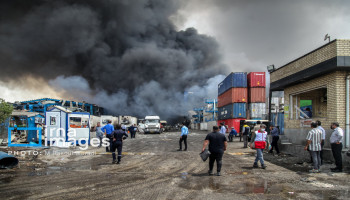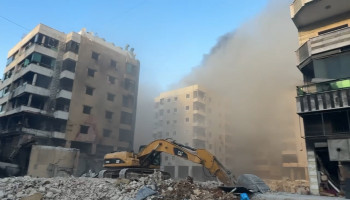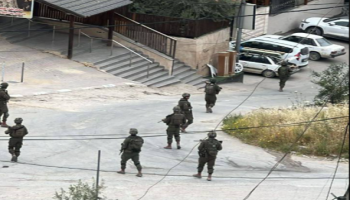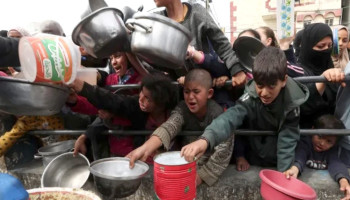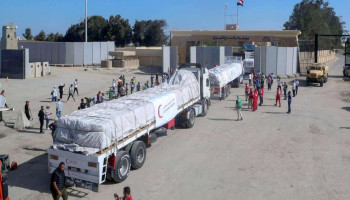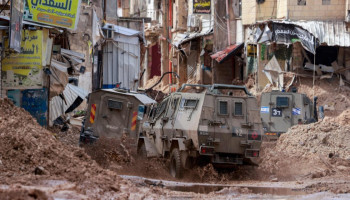The Lebanese Red Cross says at least 20 people have been killed and dozens injured when a fuel truck exploded in the northern region of Akkar.
“Our teams have transported 20 dead bodies and more than 7 injured from the fuel tanker explosion in Akkar to hospitals in the area,” the humanitarian organization wrote in an English post published on its official Twitter page on Sunday.
It later updated the number of injured to 79 and said its teams were still searching the scene.
The Lebanese Red Cross had earlier said that 22 of its teams were responding to a major incident in the area.
Videos from the blast circulating on social media showed a large fire at the blast site. The cause of the explosion was not immediately clear.
“Look at how the people are burning,” a man can be heard saying in one video shared by a local news outlet.
Local MTV Lebanon television network said there were around 200 people in the area when the blast happened in the village of Talil.
Yassine Metlej, an employee at an Akkar hospital, said that the facility had received at least seven corpses and dozens of burn victims.
“The corpses are so charred that we can’t identify them. Some have lost their faces, others their arms,” he told AFP.
Metlej said the hospital had to turn away most of the wounded because it was unable to treat severe burns.
An employee at another nearby hospital, identified only as Mohammad, said that more than 30 wounded people had flocked to the facility.
“They all have burns,” he said, adding that they were turned away because the hospital was not equipped to treat such cases.
Caretaker Health Minister Hamad Hassan has reportedly urged hospitals in the capital Beirut to receive some of the injured.
The Akkar explosion comes less than two weeks after Lebanon marked the first anniversary of a massive blast at the Beirut port last summer.
The August 2020 explosion killed more than 200 people, wounded thousands and flattened several neighborhoods in the Lebanese capital.
It was caused by the ignition of tons of highly explosive ammonium nitrate, stored in a port warehouse filled with other hazardous material since 2014.
Rights groups and families of victims accuse officials of obstructing the probe into the explosion, which has so far failed to hold high-level officials to account or reveal the exact causes of the disaster.
Officials have so far rejected lead investigator Judge Tarek Bitar’s requests to lift the immunity of several high-ranking lawmakers and security chiefs so they can be questioned on the suspicion of criminal negligence, as well as homicide with probable intent.
Lebanon has been mired since late 2019 in a deep economic and financial crisis, exacerbated by a political deadlock.
The economic and financial crisis is the gravest threat to the country’s stability since the 15-year civil war ended in 1990.
The crisis is mostly linked to the sanctions that the United States and its allies have imposed on Lebanon as well as foreign intervention in the Arab nation’s domestic affairs.
According to Hicham Safieddine, a lecturer on the history of the modern Middle East at King’s College London, US sanctions on Lebanon “have seriously undermined the stability of the banking sector by creating a chilling effect, and reduced the inflow of foreign capital."
Source: Press TV
20 People Dead, 79 Injured in Fuel Tank Explosion in Northern Lebanon
الأحد, 15 أغسطس 2021


